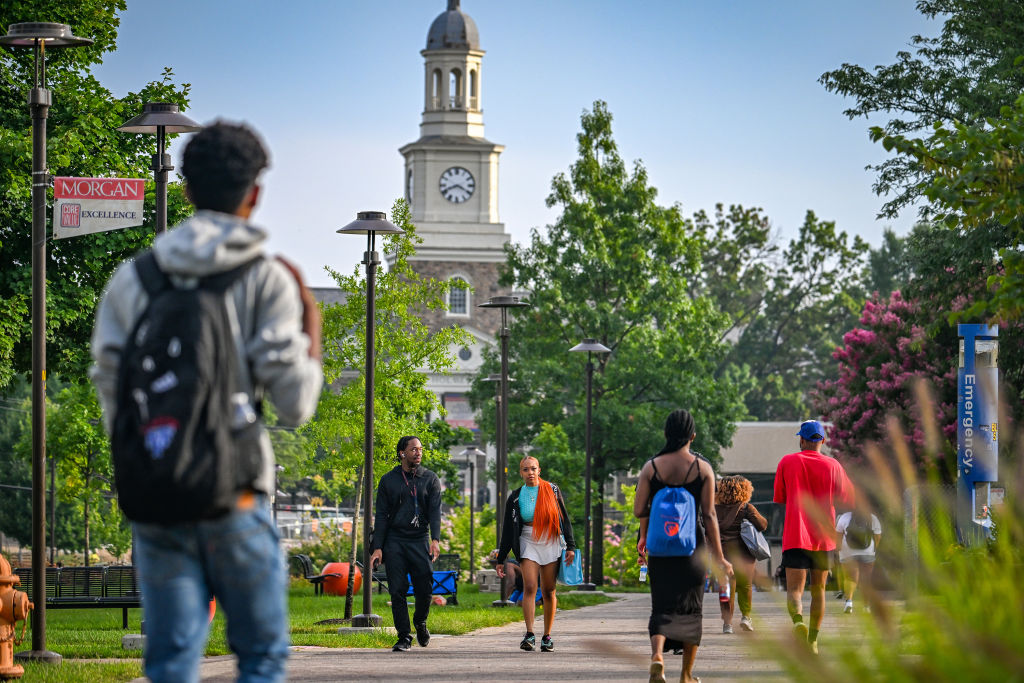
November 23, 2024
Morgan State Triumphs Again: Maryland Commission Blocks PWI’s Duplicate Doctoral Program
Morgan State University won another ruling against Towson University, accusing the PWI of duplicating the HBCUs doctorate program.
Morgan State University has won its second commission ruling against Towson University in the PWI’s repeated “unreasonable duplication” of a similar program at the HBCU.
On Nov. 20, the Maryland Higher Education Commission ruled that Towson cannot create a doctoral program in sustainability and environmental change as it closely mirrors an existing program at Morgan State University, The Baltimore Banner reports. Eight commission members voted to uphold a prior ruling on the issue made by Sanjay Rai, the state’s secretary of higher education.
“The program Towson is proposing is unreasonably and unnecessarily duplicative of the Morgan program,” Morgan State President David Wilson said at the meeting. “Morgan State University takes very, very seriously the whole notion of program duplication.”
Only one commission member disagreed with the assessment that Towson’s program would cause “demonstrable harm” to Morgan State’s bio-environmental science Ph.D. program by competing for students and faculty. The commission must now evaluate whether new programs at predominantly white institutions (PWIs) could negatively impact those at historically Black colleges and universities (HBCUs).
This marks the second time Towson has lost a ruling over allegations of replicating Morgan State University’s programs. Last year, Morgan State filed a complaint after Towson introduced a business analytics administration program similar to one at the HBCU. The Maryland Higher Education Commission ultimately sided with Morgan State, denying Towson’s request for that doctoral program as well.
“I did find duplication in terms of the degree, the specialization area, and the curriculum,” said Commissioner Janet Wormack. “The purposes may differ, but the larger portion definitely overlaps.”
While meeting with the commission, Wilson cited that Morgan State is “on the cusp” of achieving Research 1 status, a prestigious designation for institutions with the highest levels of research activity. He noted that the HBCU will fall short of the distinction, which will be announced this January, by just six graduate students and warned that Towson’s proposed doctoral program could further hinder its efforts to reach this milestone.
Wilson said that Morgan State’s bio-environmental science Ph.D. program also plays a key role in the university’s “quest” to establish the nation’s 18th federal lab at its Environmental & Aquatic Research Laboratory in Charles County. If successful, Morgan State would become the first HBCU in the country to host a federal lab.
“This is what we’re marching towards,” the Morgan State president said. “We are devoted to this area of coastal sustainability, urban environment and climate.”
A spokesperson for Towson released a statement saying while the school “respects the decision of the commissioners, we are disappointed in and do not concur with today’s denial of our appeal. The graduates of such a unique program would have helped our state to meet the critical environmental and climate-change-related challenges we all face today and increasingly will face in the future.”
Towson President Mark Ginsberg and Provost Melanie Perreault contended that their proposed program would focus more specifically on “climate change and sustainability” and would provide more workers to the sustainability job market.
“It will prepare our graduates for the immense challenge of our lifetime,” Towson President Mark Ginsberg said. “That is something that’s dramatically distinct from Morgan State.”
The commissioners dismissed Towson officials’ assertion that expanding doctoral degrees in sustainability would significantly boost the economy.
“I just don’t see the market demand that would justify this duplication,” said Commissioner Chike Aguh.
Last year, the commission denied Johns Hopkins University and Stevenson University’s requests to establish a Ph.D. program in physical therapy, citing duplication of an existing program at the University of Maryland Eastern Shore, another HBCU. The most recent decision comes after the Maryland HBCUs secured a $577 million settlement in 2021, following years of claims that the state had underfunded them and permitted other public colleges to duplicate their programs, limiting their ability to attract students.
RELATED CONTENT: Morgan State University FinTech Center Secures $1M Grant From Blockchain And Crypto Company